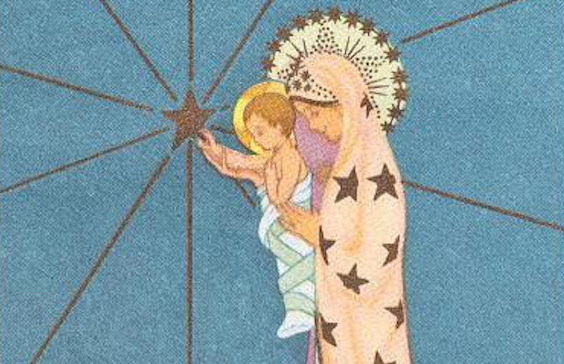I have a weakness for verses about Mary and the sea. There is that line from Eliot, that bit of the Dry Salvages, when he asks the lady, whose shrine stands on the promontory to pray for all those who are in ships, and for those who were in ships and/ ended their voyage on the sand. There is the Medieval Vespers hymn Ave, maris stella, Dei mater alma, atque semper virgo, felix cœli porta. There are, too, verses more secular in appearance if not in truth, Marian devotion reimagined as devotion to a woman who is a lighthouse: that line from Leonard Cohen’s “Suzanne” about our lady of the harbor, or from Joan Baez’s “Diamonds and Rust,” when she sings, with a pagan twist, of her lover: there you stayed/Temporarily lost at sea/The Madonna was yours for free/Yes, the girl on the half-shell. Mary, and the women one sees Mary in, stand at the sea’s edge, with harbor signs. They pull you home. She is a lighthouse. I know now that the concept of Stella Maris itself arises from a hapax: a transcription error in the time of Jerome (Mary was meant to be a drop of the sea, not its star), but of course Mary’s story has always been about particular, peculiar things happening in extraordinary times.
Login to read more
Sign in or create a free account to access Subscriber-only content.
Topics:
